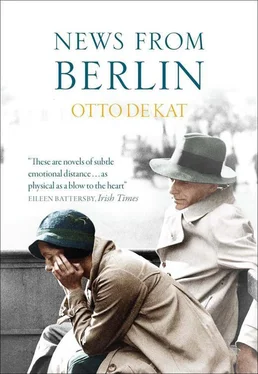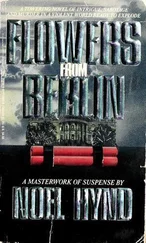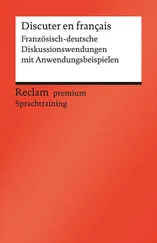*
Like a sleepwalker, he boarded the bus, the train, the plane. Like a sleepwalker, he arrived in Lisbon, and at long last found himself in Berne. A tool in nobody’s hands. Every movement he made was automatic and slow. He trailed after the people ahead of him, joined queues when required, submitted to customs checks, showed his passport to whomever it concerned. Papers, documents, where to, where from – he complied dutifully with every demand during the interminable journey home. Home to the stark vacuity of the house on Ensingerstrasse, where the postman whistled as he made his deliveries, where children played games on the pavement and the occasional motor car drove by at a snail’s pace. Where there was not the faintest intimation of the war that was all over the newspapers: Crete fallen, tank battles in Africa, planes shot down, vessels destroyed. A paper reality, abstract. It was a normal day in June.
Oscar arrived at three in the afternoon, the sleepiest, haziest hour of the day. The emptiness overwhelmed him. It was strange how the absence of anything could have such an effect. As if nothing was familiar, as if he had stepped into someone else’s life, had penetrated, thief-like, into a domain that was his but stripped of value or memory. The doors and windows were closed, the table had not been cleared, the sofa was strewn with old newspapers, the clock stood still. The occupant had clearly left in great haste, whether intending to return was impossible to say.
He stood in the middle of the room still holding his travel bag, because there was no-one to take it from him or say “You can leave your luggage over there”.
He who tries to forget remains a prisoner, he who cares to remember feels free.
Oscar wished in particular to free himself of the memories of the past few days.
“Do you still have that envelope, Oscar?” Kate had looked away when she asked him during breakfast the next morning – couldn’t resist asking, of course. Two days ago already.
“I kept it along with the notes for my thesis. In an envelope from Hotel Vita in Milan.”
The cardboard box containing his thesis material had travelled with him to each of his postings, and was now in a cabinet in his study, labelled “ Milan 1909 / Thesis 1913 ”. The ink had faded, the scrawl was barely legible. He had never opened the box again, but had seen it very often, confronting him balefully both in his mind’s eye and from its recess in the cabinet. Roy de Winther. How could a man so brilliant die so young, a man so attractive, happy, enterprising, and successful? One careless mistake by an engine driver, one drowsy signal master’s oversight.
“To live is to dream, and death, I think, is what awakens us.”
A line from a poem. Oscar stood where he was, letting his mind wander. Then he set his bag on the floor, went over to the sofa, gathered the newspapers and burned them in the fireplace. Slowly, his soul returned to him. And Lara. She had been with him all along, inseparable from him in mind, locked in soundless, abstract dialogue. He would phone her shortly, tell her he had arrived in Berne and would be going straight on to Fribourg. Fribourg, the name of the town sounded so free, so fresh and unfettered, so like her. This was it, there was no going back now. Love by accident, by fate, without escape or future. He wished he could have stayed with her in the snow of the Berner Oberland – which was what he had wished from the start, a little over three months ago. From Berne to Fribourg was a stone’s throw, so why not pick up his bag and go?
He had no answer. He left the bag where it stood, and stretched out on the sofa. Dog-tired he was, his legs leaden, even lying down made him ache. The machine ground to a halt. He dozed, though not for long. A dream jolted him awake, something to do with his mother. His first impulse was to telephone her. Old habits – his mother had been dead for a good five years. She had died with the illusion that peace could be maintained, having kept her war resister’s brooch with the broken rifle like a crucifix on her bedside table, next to the photograph of his father, whose early death meant that Oscar had never got to know him properly. His mother, a one-man woman, as she liked to call herself, had not remarried. She remained wedded to an absence that cast a long shadow both forwards and back. The dream that woke him was not new: it was of his mother raising her arm like a drawbridge in an attempt to wave.
He knew where the image sprang from. “You should get me some poison, Oscar. I cannot, will not go on like this.” It had not been a recommendation, rather a non-negotiable order. The belligerence of a very old, lifelong pacifist. The words did not seem to be her own, just as her voice seemed to rise from unknown depths, dark, imperious, even repellent at times. Week after week saw her intoning her mantra of self-willed death, and him refusing to act on it. His loving, strong, desperate mother, who subsequently threatened to throw herself from the window. The ultimate deed, the rebellion of a life under duress. She meant what she said, of that he had been convinced. His response had been no less adamant: she should stop eating and drinking, he would stay with her, keep vigil, hold her hand to the last. He knew a doctor who would prescribe morphine if the pain grew unbearable. At length she conceded. When the doctor came with his potion for everlasting sleep and Oscar took her hand in his, she said: “I won’t have to jump now.”
The nights on a mattress beside her bed would stay with him forever. So would the groans and whimpers of her frame, now shrunken to a comma. A night on a mattress, two steps away from death, lasts a long time. The feeble wave of a stray arm, raised at a passing signal, at the moon through the clouds. So much is certain: in the hour of our vanishing all is unknown.
“Kate de Winther?” a courteous voice enquired from below. Her name sounded droll in Italian, she thought. She was sitting on her balcony waiting for Roy, whom she expected any moment. She leaned over the stone balustrade. The man looking up at her wore the Italian railway uniform.
“Lost your way, have you? The station is miles away,” she retorted laughingly. To her surprise, there was no reply. All he did was motion her to come down. So Kate was left to smile at her own joke as she descended the cool stairs in her bare feet. Her pale yellow dress was almost white in the sunshine, and she remembered thinking how hot the railway man must be feeling. He began to say something she did not understand. She would never understand. He must have caught her as she fell.
*
The scene leaping unbidden into her mind was one that had obsessed her a lifetime ago. In the days before Oscar.
She was on a different balcony now, her lookout post at the beginning and end of each day. Since Oscar turned up out of nowhere, everything that had previously been firmly in place had come loose. Her life with Roy had returned in all its intensity. “Forgetting is the enemy of happiness,” she had read on a calendar somewhere, words of wisdom she had dismissed at the time, thinking you could just as well turn it around and say “Happiness is the ability to forget”, and that had been her solution. But it hadn’t worked. Because this deferred grief, or rather the melting of the frozenness, the exquisite act of remembrance, had been going on for days now. She no longer opposed it. Kate de Winther, that was who she was, the old name she was so comfortable with, the best of names, better even than her maiden name.
What would Roy have done if he knew about Barbarossa, she asked herself over and over, until she could think of nothing else. Then she knew. Alright, she would go to Oscar’s bosses, or to the Foreign Ministry, if need be to the Dutch queen herself, she would spread the news, whatever Oscar said. Somebody had to. Why oh why had she left it so late – they couldn’t go on ignoring it, Oscar, that was simply not on. Those poor innocent souls along the borders, they would all die. It was June 19. There was still time.
Читать дальше












